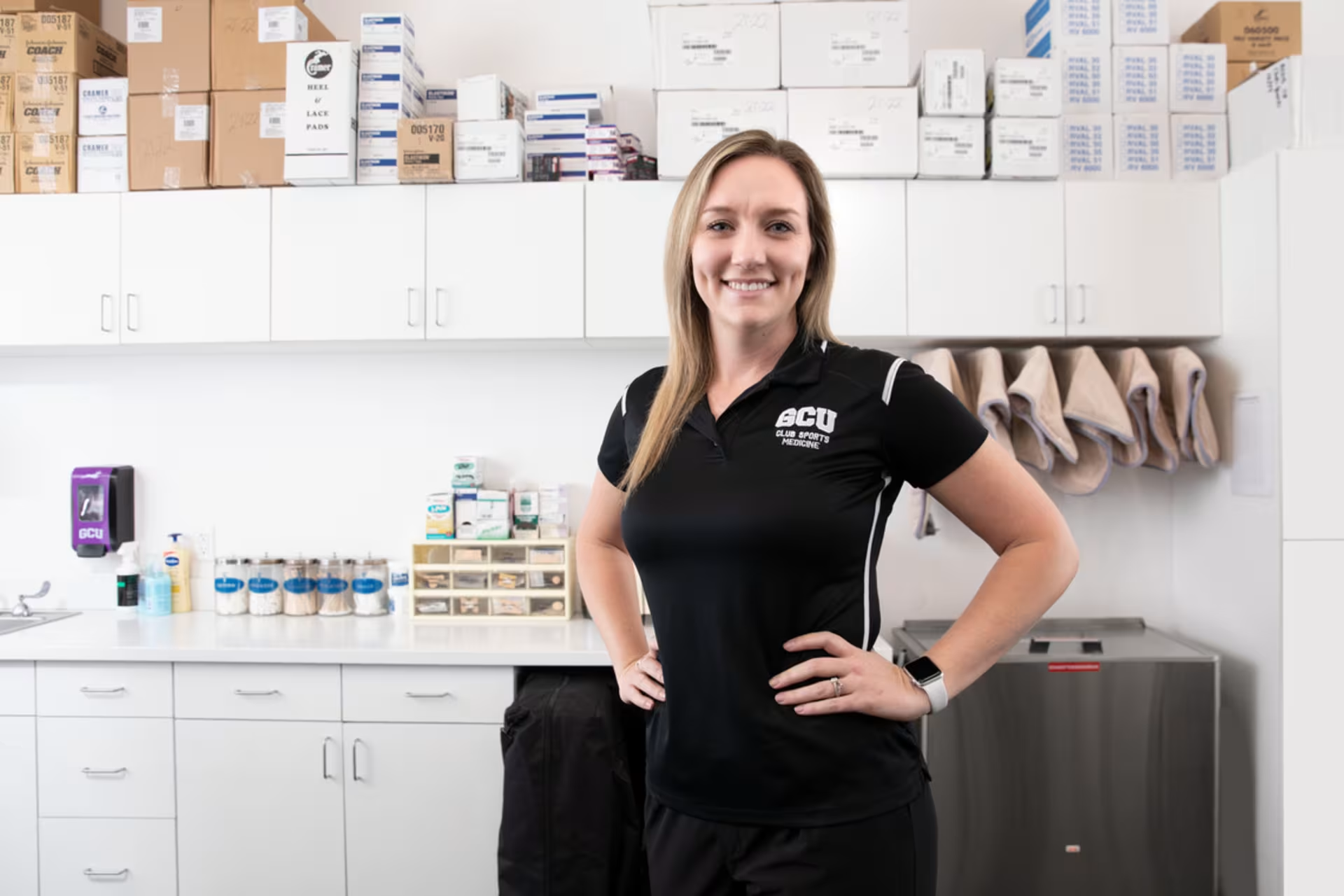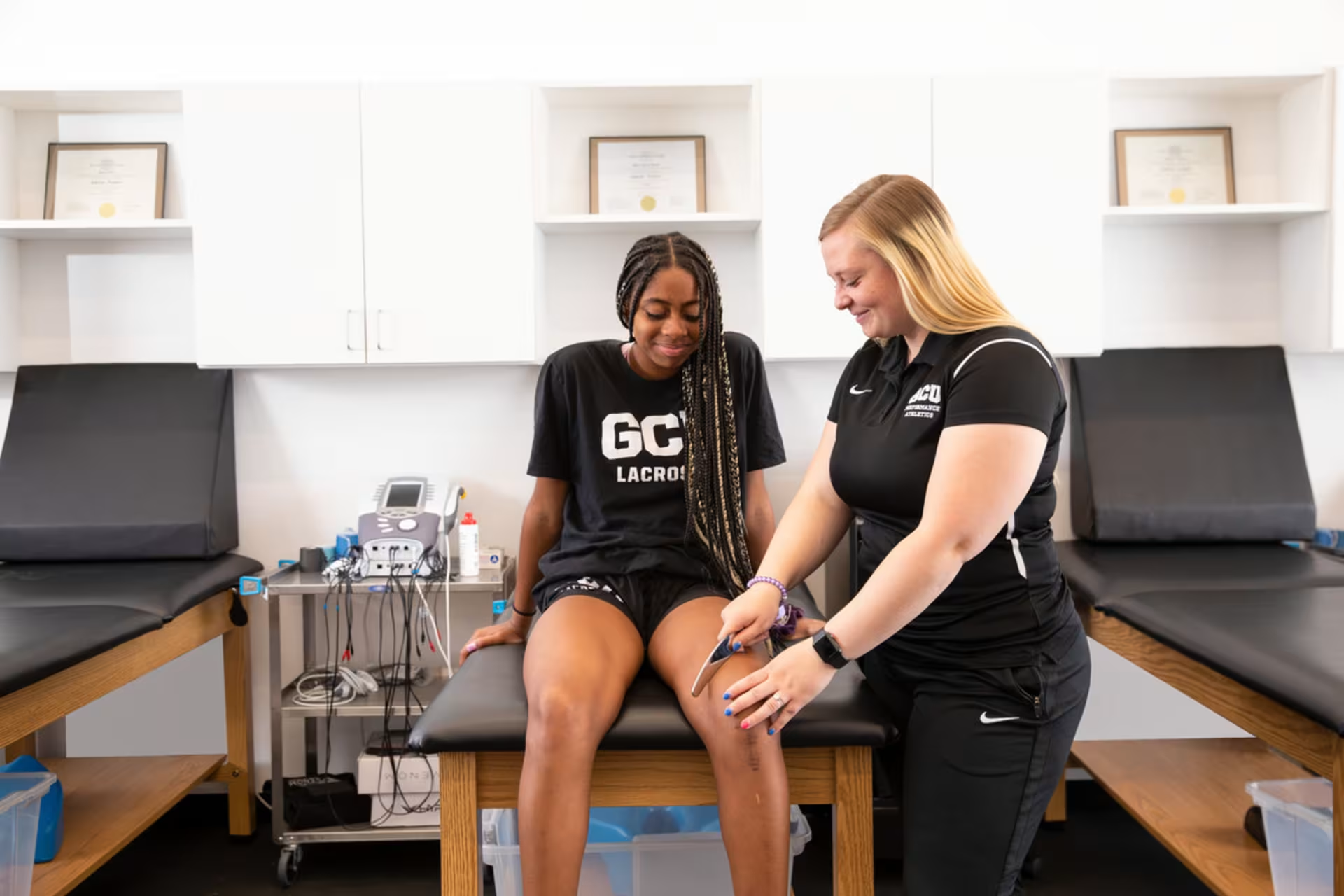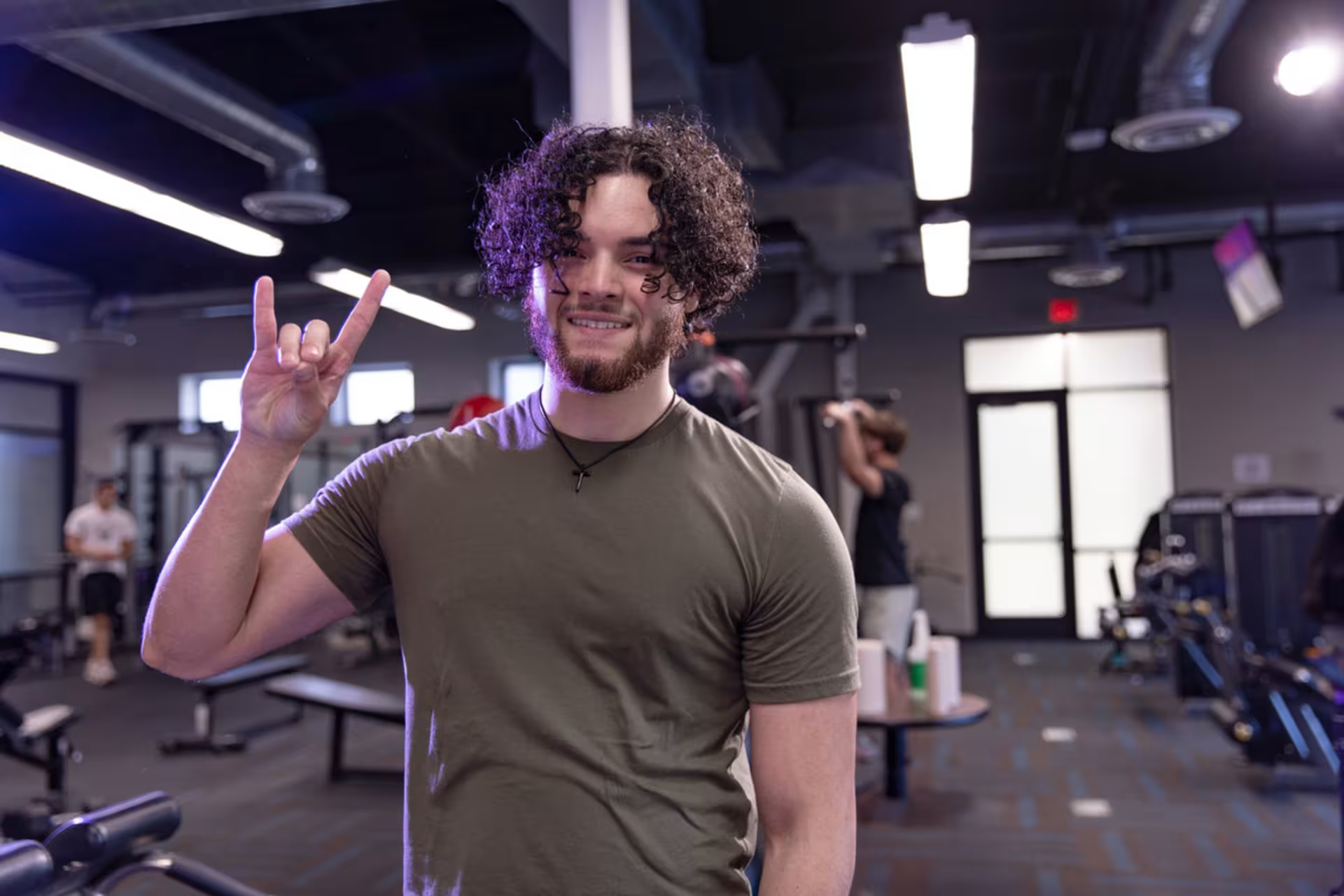
Undergraduate Degrees in Exercise Science
journey today.

Step into the world of human movement and performance with Grand Canyon University’s undergraduate degrees in exercise science. From biomechanics to physiology, you'll explore how the body functions, adapts and thrives, while preparing for careers in fitness, rehabilitation and sports science. This is where passion for wellness meets hands-on learning through purpose-driven education.

GCU's undergraduate degrees in exercise science offer a powerful starting point for those drawn to sports performance, pre-physical therapy or pre-athletic training. Each program teaches a blend of science, movement and hands-on experience through labs, knowledgeable faculty and a faith-based campus culture.
From day one, you will dive into topics that explore how the body functions under stress, adapts to training and recovers from injury. The curriculum emphasizes hands-on application, whether you're analyzing movement patterns, designing exercise programs or learning the clinical techniques used in therapy and athletic care. GCU teaches a mix of science and strategy to help you think critically and work confidently in health-focused environments.
Topics covered across exercise science emphases at GCU:
Human anatomy and physiology
Kinesiology and biomechanics
Nutrition and metabolism
Injury prevention and rehabilitation techniques
Strength and conditioning principles
Clinical assessment and therapeutic exercise
Health behavior and wellness strategies
Research methods in exercise science
"Students in the College of Natural Sciences can choose to participate in programs that provide practice in highly specialized skills that can help them enter a career in a variety of scientific fields. "
"Students in the College of Natural Sciences can choose to participate in programs that provide practice in highly specialized skills that can help them enter a career in a variety of scientific fields. "
Exercise science programs can open doors to a variety of roles where body mechanics, health and functional ability intersect, such as exercise physiologists and physical therapists. It’s important to note that some careers within exercise science may require additional training, practicum experience or certification beyond an undergraduate degree.
Those who pursue exercise health degrees may find work in a variety of settings, including:1
Hospitals
Corporate wellness
Rehabilitation clinics
Fitness facilities
Private clinics or offices
Nursing homes
High schools
Colleges and universities
Median annual wage for exercise physiologists as of May 20242
Estimated job growth for exercise physiologists from 2024 to 20343
Use the following frequently asked questions and answers to get started on your career research and learn about the exercise science programs available at GCU.
Exercise science is the study of how the body responds, adapts and thrives through physical activity. It’s where biology meets movement and where data drives decisions about training, recovery and overall health.
From understanding muscle mechanics to exploring how the brain controls motion, exercise science blends physiology, biomechanics and psychology to improve human function — whether in athletes, patients or the general public. It’s not just about working out; it’s about working with the science behind it.
From athletic settings to clinical environments, you will be taught the skills necessary to explore career paths in training, rehabilitation, wellness and human physiology. This foundation can open doors to roles in sports performance, health coaching, clinical research and other fields centered on optimizing human health — tailored to your interests and future specialization.
A degree in exercise science can be the foundation for a human-centered career for those drawn to understanding how the human body moves, heals and performs. The field blends science with service, often appealing to students who want to make a tangible impact on health, fitness or healing. It can also serve as a steppingstone toward advanced study in physical therapy, athletic training or medical fields.
Students interested in fitness, recovery and human performance may find exercise science a compelling field of study. At GCU, programs in exercise science offer a blend of theory and hands-on learning that will teach you to examine how movement, anatomy and wellness intersect. Lab experiences, data analysis and coursework in biomechanics and physiology will show you how exercise impacts recovery, performance and overall health. For those eyeing careers in athletic training, physical therapy or wellness, this path can build the scientific and interpersonal skills valued in the field.
Applicants to GCU’s exercise science program must submit an application, official transcripts and proof of high school completion.
GCU is institutionally accredited by the Higher Learning Commission. Additionally, our sports performance emphasis is an Education Recognition Program (ERP) through the National Strength and Conditioning Association (NSCA). Both of these recognitions affirm GCU's high standards in career and certificate preparation.
Pursuing your degree on campus at GCU means learning inside collaborative labs, engaging in face-to-face conversations with knowledgeable faculty and building lifelong connections in a vibrant Christian community. From cheering at Lopes games to hands-on research opportunities, campus life adds depth and energy to your academic journey.
GCU supports your professional goals with career services such as resume guidance, mock interviews and job fairs. You’ll also have access to networking events and internships that can connect you with professionals in the field. Fitness centers, wellness programs and dining options can help you maintain a balanced lifestyle as an exercise science student.

Explore one of GCU’s undergraduate exercise science degrees — where movement meets science and experience shapes your future in fitness and rehabilitation.